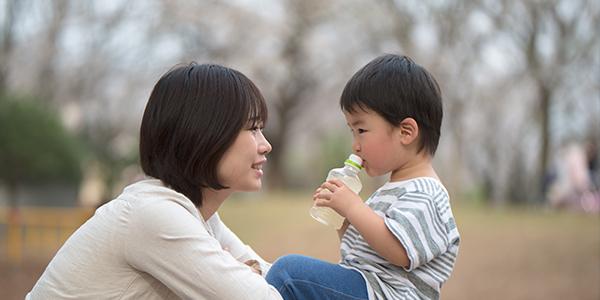Families, Lay Your Burdens Down: Supporting Your Children

This blog is a part of "Supporting Families and Teachers Through Change", a blog series where authors from many perspectives and roles in early childhood explore ways to support educators and the families they serve during this period of rapid change.
Maya Angelou’s poem, “Woman Work,” begins with “I’ve got children to tend” and then goes on to detail all the things she has to do to take care of the children and the household, including picking cotton. The poem reminds us that parents’, families’, and caregivers’ jobs are never done, and for many, these jobs are invisible and unappreciated. As families and children adapt to the ever-changing context of the COVID-19 pandemic, families must remember to allow the rain to, in Angelou’s words, “cool their brows.” This means that parents and caregivers must take time to take a deep breath because the work of caring for, supporting, teaching, and healing children is never done.
Our most effective way of supporting children is through taking care of ourselves. We know that the early years set the foundation for children’s development and learning, but we also know that children are resilient. Countless studies and stories remind us that children thrive in an environment where their basic needs are met within a home environment that is sensitive, nurturing, and enriching. This is best done when parents and caregivers are not highly stressed and all stress is not equal. Not being stressed or anxious is hard to do during this pandemic when many around you may be sick, you are sick or fear being sick, you have lost a loved one, are unemployed or fear being unemployed; or if you worry about having enough food or a place to live.
While I encourage families to lean into their role as a teacher, parent, caregiver, therapist and spiritual guide, and in many instances short-order cook, seamstress, and laundress, being a “superwoman” should not be the goal. To support their child, parents should also lean into their social network and community, including their child care provider, teacher, and neighbor. Social distancing should not mean we distance ourselves from our supports but means we should find other ways to share our burdens.
At the end of the poem, Maya Angelou reminds us to take a moment to breathe and appreciate nature, since that is usually free and available and you can call it your own. To support our children, families and parents must rest and get their strength and remember that they are not in this alone even if it feels that way at times. Look around as your support may be right next door or even above you.
Iheoma U. Iruka, PhD, is research professor in public policy and founding director of the equity research action coalition at the Frank Porter Graham Child Development Institute at the University of North Carolina at Chapel Hill. Dr. Iruka is engaged in projects and initiatives focused on how evidence‑informed policies, systems, and practices in early education can support the optimal development and experiences of children who are from households with low income, ethnic minorities, and immigrants. She is focused on ensuring healthy development and excellence for young diverse learners, especially Black children, through classroom and family tools, the examination of nontraditional pedagogical approaches, public policies, and publications geared toward early education practitioners and policymakers. She is an author of several books, including Don’t Look Away: Embracing Anti‑Bias Classrooms (Gryphon House, 2020). Dr. Iruka serves or has served on numerous national boards and committees, including the Brady Education Foundation, the American Psychological Association’s Board of Educational Affairs Task Force on Racial and Ethnic Disparities, and the National Academies of Sciences, Engineering, and Medicine committees on Supporting Parents of Young Children and Applying Neurobiological and Socio‑Behavioral Sciences from Prenatal through Early Childhood Development: A Health Equity Approach.